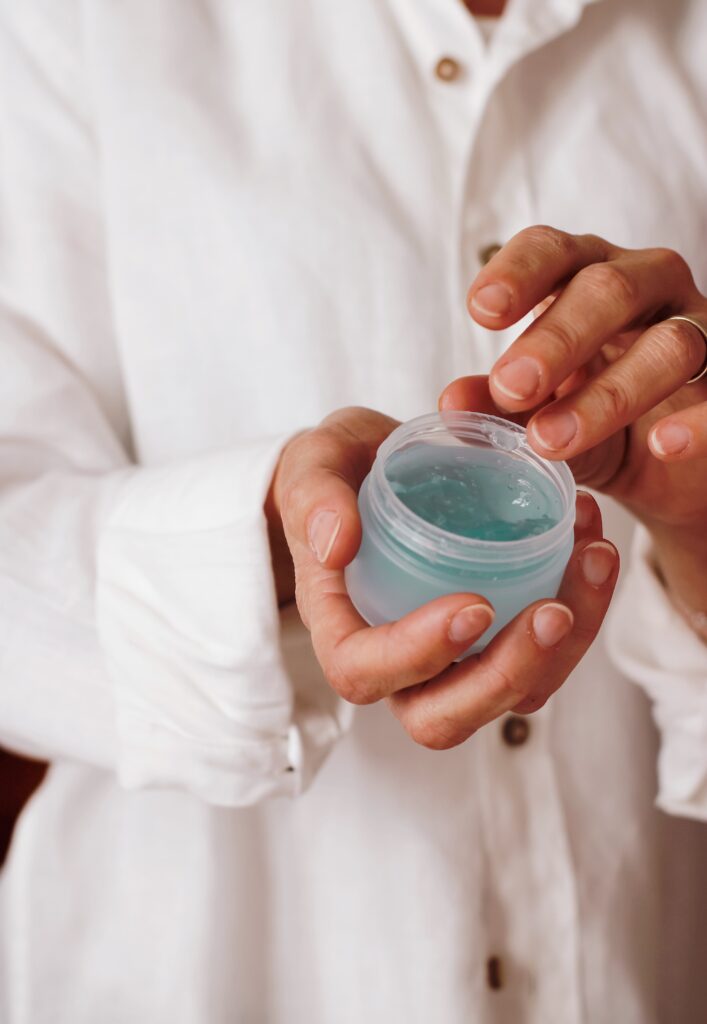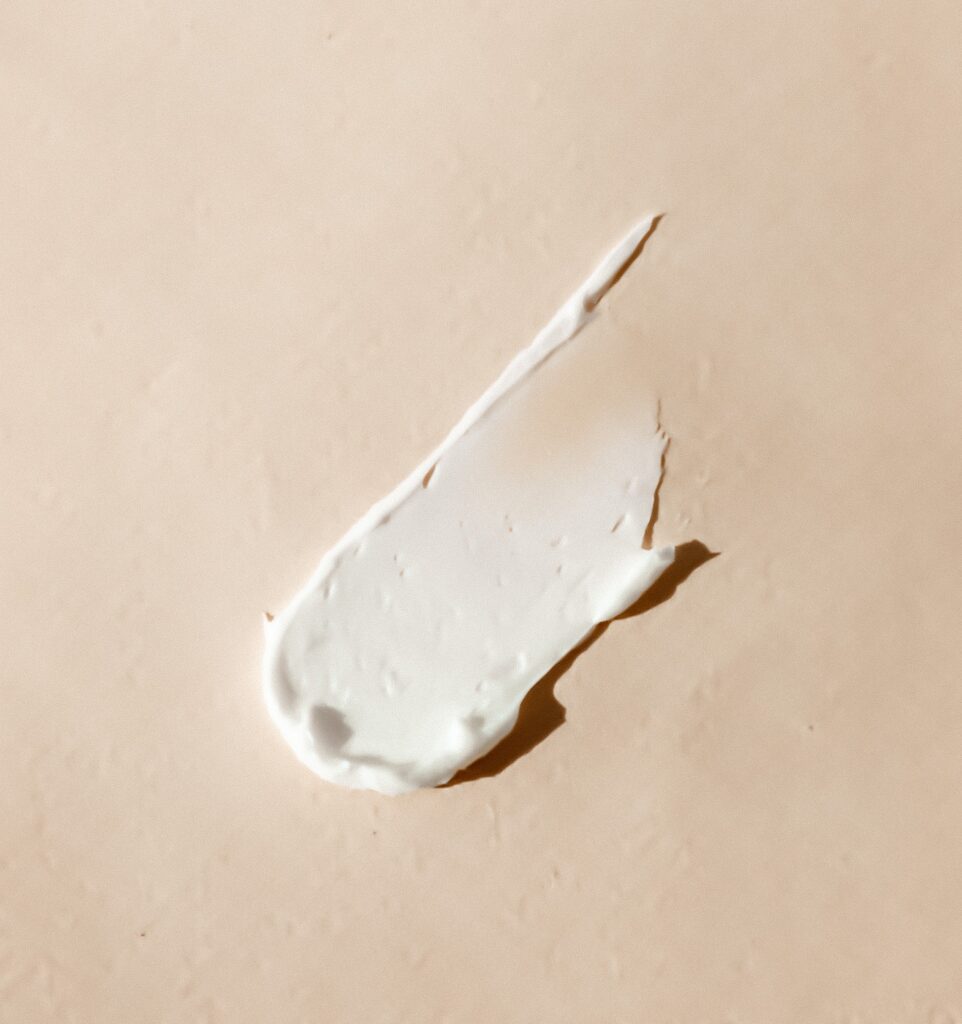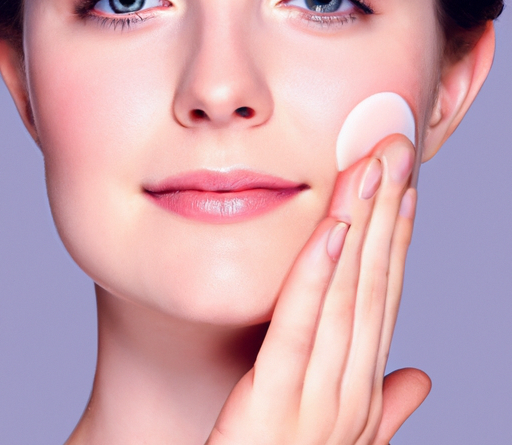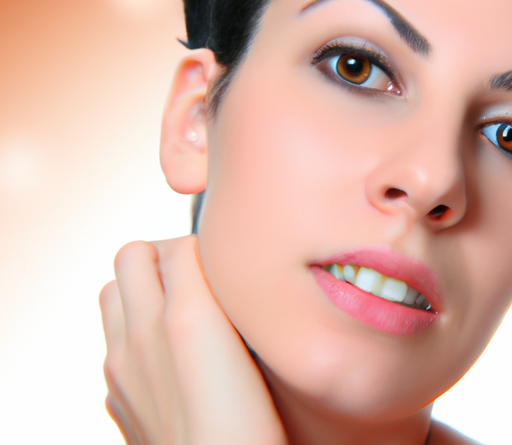In this article, you will learn how to transform your skin in just 7 days. We will share tips and techniques to help you achieve healthier and glowing skin. From skincare routines to dietary changes, we will cover everything you need to know to enhance your complexion. Get ready to achieve the skin of your dreams in just one week!
Why is skincare important?
Understanding the importance of skincare
Taking care of your skin is more than just wanting to look good. Skincare is vital because your skin is the largest organ of your body, and it plays a crucial role in protecting you from external factors such as heat, sunlight, and pollutants. A good skincare routine can help maintain the health and integrity of your skin, keeping it moisturized, balanced, and youthful-looking.
Factors that affect skin health
Several factors can affect the health of your skin. Environmental factors like pollution, UV radiation, and harsh weather conditions can damage your skin and accelerate signs of aging. Lifestyle choices, such as smoking, poor nutrition, lack of sleep, and excessive stress, can also take a toll on your skin’s health. Additionally, genetics and hormonal changes can influence the condition of your skin.
Benefits of maintaining a skincare routine
Maintaining a regular skincare routine brings several benefits. Firstly, it helps keep your skin clean. Daily cleansing removes dirt, oil, and impurities that can clog your pores and lead to breakouts. Secondly, a skincare routine promotes proper hydration. Moisturizing your skin ensures it stays nourished and supple, preventing dryness and flakiness. Lastly, a consistent skincare routine supports healthy aging by minimizing the appearance of wrinkles, fine lines, and age spots.
The 7-day skincare transformation
Setting realistic goals for your skin
Before embarking on your 7-day skincare transformation, it’s essential to set realistic goals for your skin. Understand that visible changes may take time, and consistency is key to achieving long-lasting results. Focus on improving the overall health and appearance of your skin rather than aiming for radical transformations overnight.
Identifying your skin type
To determine the most suitable skincare routine, it’s crucial to identify your skin type. Common skin types include oily, dry, combination, and sensitive. Oily skin tends to produce excess sebum, leading to a shiny complexion and increased likelihood of breakouts. Dry skin lacks natural moisture, resulting in roughness and flakiness. Combination skin exhibits characteristics of both oily and dry skin, with more oiliness in the T-zone. Sensitive skin is prone to irritation and inflammation. Understanding your skin type will help you choose the right products for your needs.
Choosing the right skincare products
Selecting the right skincare products is essential for achieving your desired results. Start by considering your specific skincare needs, such as hydration, anti-aging, or acne control. Look for products that are formulated to address your concerns. When reading product labels, pay attention to key ingredients that can benefit your skin. Avoid products that contain potentially harmful ingredients or allergens that may cause adverse reactions. If you’re unsure about what products to use, consult with a skincare professional or dermatologist.
Morning skincare routine
Your morning skincare routine sets the tone for the day ahead. Begin by cleansing your face to remove any impurities that may have accumulated overnight. Use a gentle cleanser suitable for your skin type. After cleansing, apply a toner to balance the pH level of your skin and prepare it for absorption of subsequent products. Follow up with a moisturizer to hydrate your skin and lock in moisture. Lastly, don’t forget to apply sunscreen with a broad-spectrum SPF to protect your delicate skin from harmful UV rays.
Evening skincare routine
Nighttime is the perfect opportunity to repair and rejuvenate your skin. Start by removing any makeup with a gentle makeup remover to ensure your skin is clean. Follow up with a double cleanse, using an oil-based cleanser to remove impurities and a water-based cleanser to thoroughly cleanse your skin. After cleansing, apply suitable serums or treatments to target specific skin concerns, such as anti-aging or brightening. Finish your evening routine by moisturizing your skin to provide hydration throughout the night.
Weekly treatments for maximum results
In addition to your daily skincare routine, incorporating weekly treatments can enhance the effectiveness of your skincare routine. Exfoliation is an excellent way to remove dead skin cells and reveal a brighter complexion. Use a gentle exfoliator suitable for your skin type. Face masks are also beneficial for providing deep hydration and addressing specific skin concerns. Look for masks with ingredients like hyaluronic acid or collagen. Incorporating facial oils or serums can provide intensive nourishment and address specific skin concerns. Finally, consider giving yourself a facial massage to improve blood circulation and promote a radiant glow.
Monitoring and adjusting your routine
Throughout your skincare journey, it’s important to regularly monitor the changes in your skin and evaluate the effectiveness of your routine. Take note of any improvements or concerns you may have. If you notice any adverse reactions or no significant changes, consider making adjustments to your routine. Remember, everyone’s skin is unique, and what works for others may not work for you. Be patient and allow your skin to adapt to the new routine before making any drastic changes.

This image is property of images.unsplash.com.
Morning skincare routine
Cleansing your face
Start your morning skincare routine by cleansing your face with a gentle cleanser. This will help remove any impurities and oils that may have accumulated overnight. Choose a cleanser that is suitable for your skin type. If you have oily skin, opt for a gel or foaming cleanser to help control excess oil. For dry or sensitive skin, a cream or lotion cleanser will provide gentle hydration.
Applying toner
After cleansing, apply a toner to your face. Toners help balance the pH of your skin and prepare it for better product absorption. Toners come in various formats, such as toning pads, mists, or liquid toners to be applied with cotton pads. Choose a toner that suits your skin type and concerns. Look for toners with hydrating ingredients like hyaluronic acid or soothing ingredients like chamomile extract.
Using moisturizer
Next, apply a moisturizer to your face. Moisturizers help hydrate and nourish your skin, providing a protective barrier against environmental pollutants. Choose a moisturizer that is suitable for your skin type. For oily skin, opt for oil-free or lightweight moisturizers that won’t clog your pores. Dry skin can benefit from richer, more hydrating moisturizers. Gently massage the moisturizer into your skin using upward motions.
Applying sunscreen
The final step in your morning skincare routine should be applying sunscreen. Sunscreen is essential to protect your skin from harmful UV rays that can cause premature aging, sunburns, and even skin cancer. Choose a broad-spectrum sunscreen with an SPF of 30 or higher. Apply sunscreen generously to all exposed areas, including your face, neck, and any other parts of your body that will be exposed to the sun. Reapply sunscreen every two hours and after swimming or excessive sweating.
Bonus tips for a refreshed morning look
To achieve a refreshed morning look, consider implementing a few additional steps in your skincare routine. Using an eye cream can help reduce puffiness and dark circles, giving your eyes a more awake appearance. Applying a lip balm or lip mask can ensure your lips stay hydrated and soft throughout the day. Lastly, if time allows, indulge in a facial massage to stimulate blood circulation and give your skin a natural glow.
Evening skincare routine
Makeup removal
Before starting your evening skincare routine, it’s crucial to remove any makeup that you may have on. Leaving makeup on overnight can clog your pores and lead to breakouts. Use a gentle makeup remover, such as micellar water or makeup cleansing wipes, to remove makeup from your face. Be thorough and ensure that all traces of makeup are removed before proceeding to the next step.
Double cleansing
Double cleansing is an effective way to ensure your skin is thoroughly clean and free from impurities. Begin with an oil-based cleanser to remove oil-based impurities like makeup, sunscreen, and excess sebum. Massage the cleanser onto your dry face, focusing on areas with heavier makeup. Rinse with warm water. Follow up with a water-based cleanser to remove any remaining impurities. Again, massage the cleanser onto your damp face and rinse thoroughly.
Applying serums and treatments
After cleansing, apply any serums or treatments that target specific skin concerns. Serums are lightweight, concentrated formulas that penetrate deeper into the skin, delivering active ingredients. Depending on your skin concerns, choose serums with ingredients like vitamin C for brightening, hyaluronic acid for hydration, or retinol for anti-aging benefits. Gently pat the serums onto your face, allowing them to absorb fully before moving on to the next step.
Moisturizing your skin
Moisturizing your skin is crucial at night to replenish lost moisture and repair any damage. Choose a moisturizer that suits your skin type and concerns. Look for ingredients like ceramides or peptides that help to strengthen the skin barrier and promote repair. Apply the moisturizer in upward motions, gently massaging it into your skin. Give it a few minutes to fully absorb before heading to bed.
Nighttime skincare tips for better results
To enhance the results of your nighttime skincare routine, consider incorporating a few additional tips. Sleeping on a silk or satin pillowcase can reduce friction and minimize the appearance of sleep lines or wrinkles. Using a humidifier in your bedroom can also help keep the air moist, preventing your skin from becoming dry during the night. Finally, make sure you get enough quality sleep, as sleep is essential for healthy skin regeneration and repair.

This image is property of images.unsplash.com.
Identifying your skin type
Understanding the different skin types
Understanding your skin type is essential in tailoring your skincare routine accordingly. There are four main skin types: oily, dry, combination, and sensitive.
- Oily skin: Oily skin is characterized by excess sebum production, resulting in a shiny complexion and increased likelihood of breakouts. Pores may appear larger and more visible.
- Dry skin: Dry skin lacks natural moisture, often leading to tightness, flakiness, and dullness. It may feel rough to the touch and may be more prone to fine lines and wrinkles.
- Combination skin: Combination skin exhibits characteristics of both oily and dry skin. The T-zone (forehead, nose, and chin) tends to be more oily, while the cheeks and jawline can be drier.
- Sensitive skin: Sensitive skin is easily irritated and more prone to redness, itching, and reactions to skincare products or environmental factors. It requires gentle and soothing skincare products.
Skin type assessment methods
If you’re unsure about your skin type, there are a few methods you can use to assess it:
- Visual examination: Look closely at your skin in natural lighting. Oily skin appears shiny, dry skin may appear flaky, combination skin exhibits both oily and dry patches, and sensitive skin may have patches of redness or irritation.
- Texture test: Feel your skin using clean hands. Oily skin may feel greasy or slick to the touch, dry skin may feel tight or rough, combination skin may have different textures in different areas, and sensitive skin may feel irritated or easily reactive.
- Blotting paper test: Gently press a blotting paper onto your face, focusing on the T-zone. Oily skin will leave visible oil on the blotting paper, while dry skin will leave little to no oil. Combination skin may leave oil on certain areas of the face and not others, and sensitive skin may not exhibit any significant oiliness.
Tailoring your skincare routine accordingly
Once you have identified your skin type, you can adapt your skincare routine to address its specific needs. For oily skin, focus on oil control and choosing lightweight, non-comedogenic products. Dry skin requires extra hydration and moisturizing ingredients. Combination skin may benefit from targeted solutions for different areas of the face. Sensitive skin needs gentle and soothing products without potential irritants or allergens.
Choosing the right skincare products
Knowing your skincare needs
Understanding your skincare needs is crucial in selecting the right products for your routine. Consider whether you are targeting specific concerns like hydration, anti-aging, acne control, or brightening. Knowing your skincare goals will help you narrow down your options and find products that are formulated to address your specific concerns effectively.
Reading product labels and ingredients
When choosing skincare products, it’s important to read product labels and understand the ingredients they contain. Look for key ingredients that are beneficial for your skin type and concerns. For example, hyaluronic acid is excellent for hydration, while retinol can help with anti-aging. Avoid products that contain potentially harmful ingredients such as parabens, sulfates, or synthetic fragrances. Opt for products with natural or organic ingredients whenever possible.
Considering skin sensitivities and allergies
If you have known skin sensitivities or allergies, it’s crucial to consider these when selecting skincare products. Be aware of any ingredients that may trigger reactions or irritations. Fragrance-free and hypoallergenic products are often safer options for sensitive skin. Consider doing a patch test before introducing new skincare products, especially if you have a history of allergic reactions.
Seeking professional advice if needed
If you’re unsure about which skincare products to use or if you have persistent skin concerns, it’s always best to seek advice from a skincare professional or dermatologist. They can assess your skin, provide personalized recommendations, and guide you in choosing the most suitable products. Professional advice can be especially helpful when addressing severe acne, rosacea, or other chronic skin conditions.

This image is property of images.unsplash.com.
Weekly treatments for maximum results
Exfoliation for brighter skin
Exfoliating your skin once or twice a week can help remove dead skin cells and reveal a brighter complexion. Choose a gentle exfoliator suitable for your skin type, such as a scrub with small, round beads or a chemical exfoliant containing alpha-hydroxy acids (AHAs) or beta-hydroxy acids (BHAs). Avoid harsh or abrasive exfoliators that can damage the skin. Gently massage the exfoliator onto damp skin in circular motions, then rinse thoroughly.
Face masks for deep hydration
Face masks provide an extra boost of hydration and can address specific skin concerns. Look for masks that contain ingredients like hyaluronic acid, aloe vera, or honey for nourishment and moisture. Clay masks can help absorb excess oil and purify the skin, making them ideal for oily or acne-prone skin. Apply the mask to clean, dry skin, and leave it on for the recommended time. Afterward, rinse off the mask and follow up with your regular skincare routine.
Using facial oils and serums
Incorporating facial oils and serums into your routine can provide intensive nourishment and address specific skin concerns. Facial oils can help seal in moisture and improve the skin’s natural barrier. Look for oils such as jojoba oil, rosehip oil, or argan oil, which are suitable for various skin types. Serums, on the other hand, are lightweight and contain concentrated active ingredients. Choose serums with ingredients like vitamin C for brightening or hyaluronic acid for hydration.
Incorporating facial massages
In addition to your daily skincare routine, incorporating facial massages can improve blood circulation, promote lymphatic drainage, and help relax facial muscles. Use gentle, upward strokes and circular motions, focusing on areas prone to tension or puffiness, such as the forehead, cheeks, and jawline. You can use your fingers or a facial massage tool like a jade roller or gua sha tool. Incorporate facial massages once or twice a week for maximum benefits.
Importance of regular skin hydration
Hydrating your skin regularly is crucial for maintaining its health and vitality. Drink enough water throughout the day to keep your body hydrated from within. Additionally, using a hydrating mist or facial spray can provide instant hydration and refreshment to your skin. Look for mists that contain ingredients like rosewater or hyaluronic acid. Spritz your face whenever you feel your skin needs a quick boost of moisture.
Monitoring and adjusting your routine
Tracking changes in your skin
Throughout your skincare journey, it’s important to track changes in your skin and stay aware of how it is responding to your routine. Take note of any improvements or concerns you may have. Observe changes in texture, hydration levels, acne breakouts, or signs of aging. Being vigilant about changes in your skin will help you better understand its needs and make informed adjustments to your routine.
Evaluating the effectiveness of your routine
Regularly evaluate the effectiveness of your skincare routine by comparing the current condition of your skin to your desired goals. Assess whether your skin concerns have improved, whether your skin feels hydrated and balanced, and whether you are experiencing any adverse reactions. Carefully review the progress and adjust your routine accordingly.
Addressing concerns and making adjustments
If you experience any concerns or issues with your skin, such as increased breakouts or excessive dryness, it’s important to address them and make adjustments to your routine. Some concerns may require changes in skincare products, while others may necessitate a visit to a dermatologist for a professional assessment and personalized treatment plan. Never ignore persistent or severe skin concerns and seek appropriate help when needed.
Importance of consistency
Consistency is key when it comes to skincare. By following a regular skincare routine consistently, you give your skin the opportunity to adapt and benefit from the products you are using. Avoid constantly switching products or routines, as this can disrupt your skin’s balance and make it difficult to assess the true effectiveness of the products you are using. Give your skin time to adjust and be patient in waiting for visible results.

Maintaining healthy lifestyle habits
Proper nutrition for skin health
Maintaining proper nutrition is essential for overall skin health. A balanced diet rich in fruits, vegetables, whole grains, lean proteins, and healthy fats provides the necessary nutrients for your skin to thrive. Incorporate foods rich in antioxidants, such as berries, spinach, and nuts, which help protect your skin from oxidative stress. Avoid excessive consumption of sugary and processed foods, as they can contribute to inflammation and skin issues.
Staying hydrated
Drinking enough water is crucial for skin hydration and overall health. Water helps flush out toxins and facilitates proper cell function. Aim to drink at least 8 glasses of water per day, or more if you engage in physically demanding activities or live in a hot climate. If you struggle with drinking plain water, you can flavor it with fruits or opt for herbal teas for added hydration.
Getting enough sleep
Sleep is essential for skin regeneration and repair. Aim to get 7-8 hours of quality sleep each night. During sleep, your body’s cortisol levels decrease, allowing your skin to repair and rejuvenate. Lack of sleep can lead to increased stress levels, which can contribute to skin issues like acne or inflammation. Prioritize your sleep and establish a calming bedtime routine for better sleep quality.
Reducing stress levels
Stress can harm your skin and overall well-being. High levels of stress can lead to increased inflammation, breakouts, and premature aging. Find effective ways to manage stress, such as practicing mindfulness techniques, exercising regularly, engaging in hobbies, or seeking support from loved ones. Take time for relaxation and self-care activities that help you unwind and promote emotional well-being.
Avoiding harmful habits
Certain habits can negatively impact your skin health. Smoking, for example, accelerates skin aging, leading to wrinkles, sagging, and a dull complexion. Limit or eliminate smoking to maintain healthy skin. Additionally, excessive alcohol consumption can dehydrate the skin and cause inflammation. Practice moderation when it comes to alcohol and consider opting for healthier alternatives like herbal teas or mocktails.
Conclusion
Achieving radiant and healthy skin is within your reach with the right skincare routine. The 7-day skincare transformation outlined here provides a comprehensive guide to understanding the importance of skincare, identifying your skin type, choosing the right products, and establishing consistent routines. By embracing a holistic approach that includes proper nutrition, hydration, sleep, stress reduction, and avoiding harmful habits, you can maintain the long-term benefits of investing in your skin. Stick to the 7-day transformation and enjoy the lasting results of a healthy, glowing complexion.







